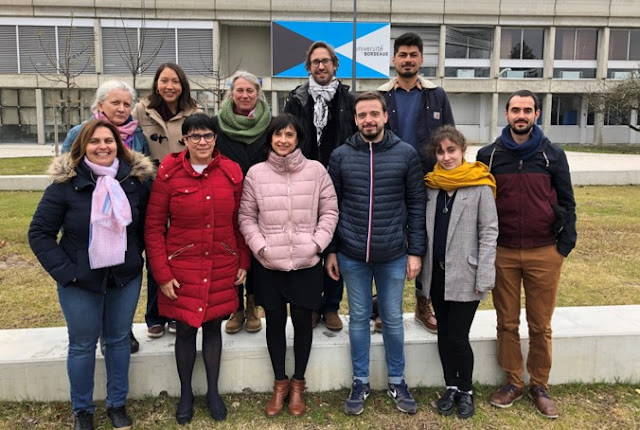Lab Spotlight: The Sawai Lab
Each month, Simply Blood spotlights a lab focused on the research of basic hematology, immunology, stem cell research, cell and gene therapy, and other related aspects. Get to know these different labs around the world! This month, we are featuring the Sawai Lab at the INSERM U1218, Institut Bergonié, University of Bordeaux, France (http://www.action.u-bordeaux.fr/atip-avenir/).
How long have you had your lab and how many members make up your lab? Students/postdocs?
Officially, I started my lab in 2019. Currently, we are a team of 4, with one PhD student, one postdoc and a staff scientist. But because of organizational changes here in Bordeaux, in January 2022 we will merge with another team to form a team of about 10 full-time members as a part of a newly formed INSERM unit based on cancer research, INSERM BRIC.
What is the major research theme of your lab?
We develop different genetic systems to study the hematopoietic system, in particular hematopoiesis in the steady state and different in vivo contexts.
What facilities or equipment does your lab absolutely depend on?
Our work relies heavily on our animal facility and flow cytometry platform.
What was the most exciting part about starting your new lab?
Tough to pick! The things that stand out the most were recruiting my first student, obtaining my first independent grant, and the results from the first experiment in the lab that seemed promising.
What has been your greatest challenge in managing your lab?
I started my lab in France, but I’m American and did all of my training in the US. I was unprepared for how different the two research systems would be, especially at the administrative level. I am fortunate to be surrounded by some extremely helpful colleagues who have helped me to navigate all of the “dossiers” that are required here in France.
What is your approach to mentoring students in this lab?
In order to stay on top of the projects, I need to meet regularly with my trainees in addition to the team meetings we have. These individual meetings can vary a little bit based on the exact nature of the experiments and pace of results. Beyond that, I try tailor my approach to what each individual needs to be as meet his/her own goals as well as those of the lab, whether that is the freedom to try to explore or sitting down with the person and walking through his/her analyses step-by-step.
What is the key to running a successful lab?
Personally, I make lists on post-it notes. Lists help me stay organized and productive, and I use them liberally in lab and in life. Having a list of tasks that must be accomplished and can be crossed off once completed can make an overwhelming amount of work feel more manageable. I also use lists when I am developing and writing projects, listing all of the aspects of a certain question I want to cover and to figure out what is the most logical and/or interesting way to present the information.
What advice would you have for new investigators just opening their lab?
Talk to people. With most everything, talking to people is a great way to save time and help find answers to questions whether it is finding a candidate to hire, new collaborators, or simply the correct way to fill out a document.
Does your lab have any fun traditions? How do members of your lab celebrate accomplishments?
With Covid and the different measures that have been enacted here in the past 18+ months, it has not been possible to celebrate the way we normally would. When we were forced to do lab meetings by Zoom we would celebrate birthdays and other occasions with a video montage with contributions from everyone. Now that I think about it, it is kind of sad. However, I am hopeful that we will soon be able to resume more regular festivities—those more relaxed moments are especially important for creating cohesion in the team!
Blog post contributed by Alessandro Donada, Ph.D, a member of the ISEH Publications Committee.


.png)


Comments
Post a Comment